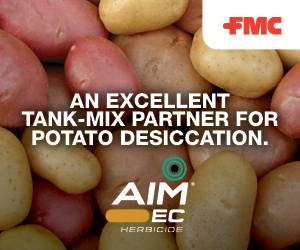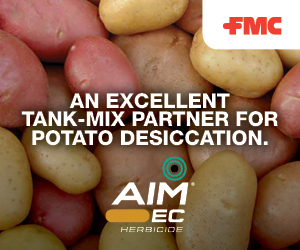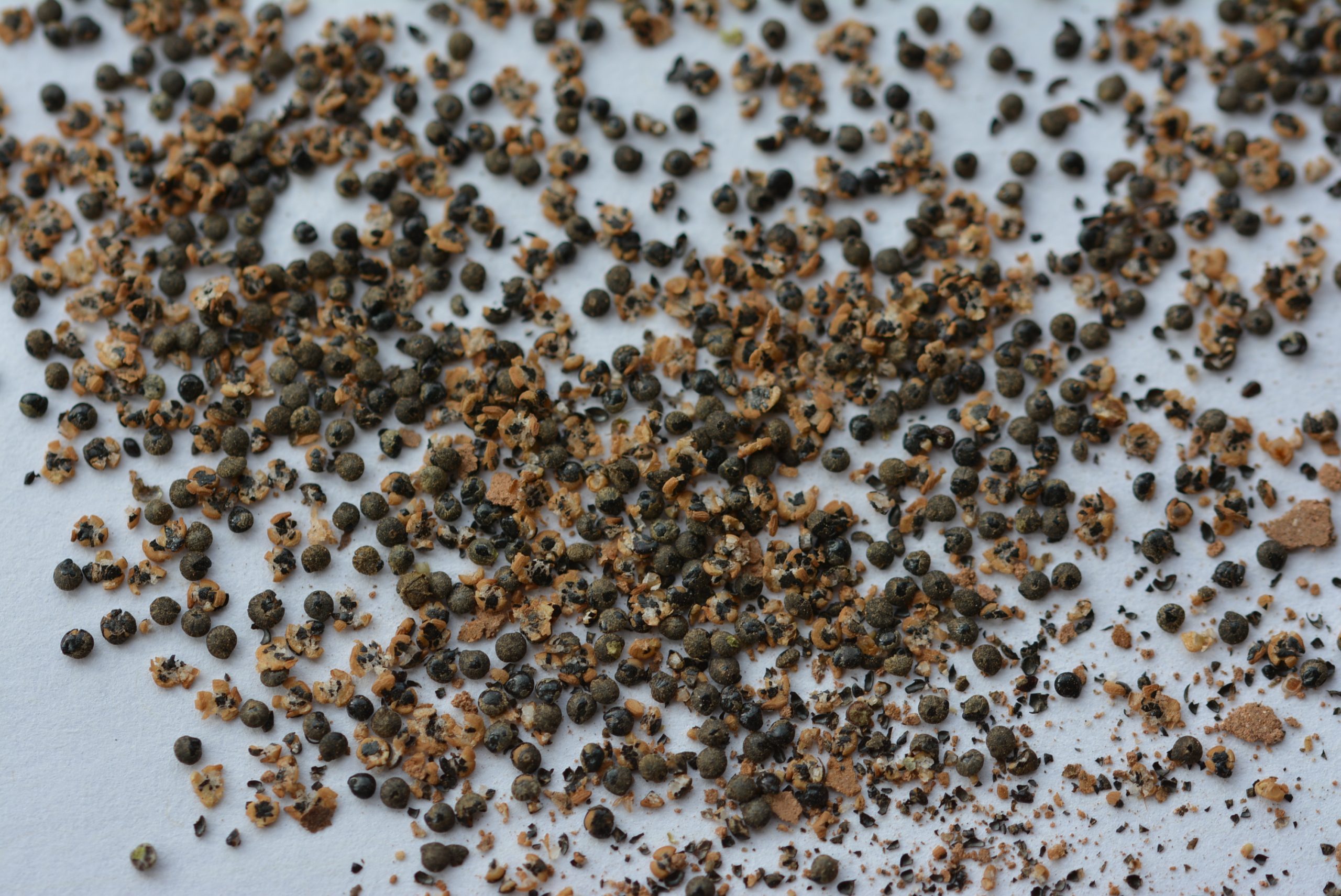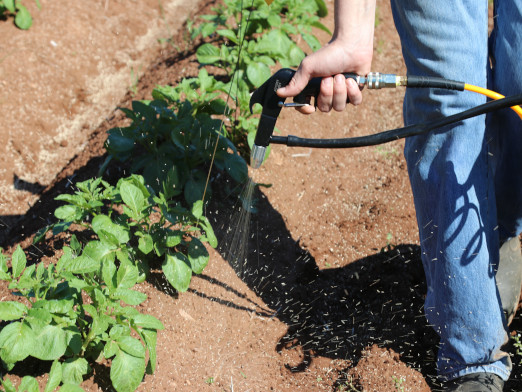| |
| |
 |
 |
| |
 |
|
@{mv_date_MMM d, yyyy}@ |
|
| |
| |
| |

BROUGHT TO YOU BY Aim® EC herbicide
Aim ® EC herbicide added to diquat herbicide targets leaves and stems for more complete potato desiccation versus diquat alone.
Improving vine kill sets you up for a better harvest. Learn More
|
|
| |
|
|
| |
 Increased tillage can help reduce soil diseases, but too much can also increase weeds and degrade soil quality, making it more prone to erosion or reducing crop yields. How can producers find the right balance?
» Read More...
Increased tillage can help reduce soil diseases, but too much can also increase weeds and degrade soil quality, making it more prone to erosion or reducing crop yields. How can producers find the right balance?
» Read More...
Nurse crops – fast-growing companion plants that are planted a day or so before the potato seed and then terminated just prior to seedling emergence – may provide similar benefits to cover crops, including keeping weeds at bay.
» Read More...
Understanding the "why" and the "how" in herbicides is crucial for selecting the right partners.
» Read More...
|
| |

|

|
| |
|
| |

Aim ® EC herbicide added to diquat herbicide targets leaves and stems for more complete potato desiccation versus diquat alone.
Improving vine kill sets you up for a better harvest:
- Benefits tuber appearance
- Limits tuber size
- Improves release from the vine at harvest
Always read and follow label instructions. Member of CropLife Canada.
FMC, the FMC logo and Aim are trademarks of FMC Corporation or an affiliate.
©2025 FMC Corporation. All rights reserved. 20708 – 3/25
» Learn More
|
| |
|
| |
 In 2011, AAFC scientists developed a piece of equipment dubbed the "potato vine crusher" to control European corn borer (ECB) populations, a common pest in potato crops that lay their eggs in potato vines after harvest and then mature the following year. But more recently, the crusher has taken on a potential second life – as a potential tool for weed control in potatoes.
» Read More...
In 2011, AAFC scientists developed a piece of equipment dubbed the "potato vine crusher" to control European corn borer (ECB) populations, a common pest in potato crops that lay their eggs in potato vines after harvest and then mature the following year. But more recently, the crusher has taken on a potential second life – as a potential tool for weed control in potatoes.
» Read More... |
| |
 Weed hunters? No, it's not a joke. It's a real concept that aims to tackle the serious and costly problem of herbicide resistance for farmers and their crops. The technique is called "abrasive or projectile weed control" and was first developed by University of Nebraska researchers for weeds affecting corn crops. Using a sandblaster, the university research team "shot" natural materials like corn grit, corn gluten meal and walnut shells directly at weeds. They found this alternative to herbicides was an effective way of killing the weeds or severely damaging them in corn crops while reducing costs and environmental impacts.
» Read More...
Weed hunters? No, it's not a joke. It's a real concept that aims to tackle the serious and costly problem of herbicide resistance for farmers and their crops. The technique is called "abrasive or projectile weed control" and was first developed by University of Nebraska researchers for weeds affecting corn crops. Using a sandblaster, the university research team "shot" natural materials like corn grit, corn gluten meal and walnut shells directly at weeds. They found this alternative to herbicides was an effective way of killing the weeds or severely damaging them in corn crops while reducing costs and environmental impacts.
» Read More... |
| |
| |
|
| |
 Manure isn't commonly used by Atlantic potato growers, usually because of lack of access to manure. However, research shows that manure can have positive effects on both soil organic matter and yields. That said, manure has still been criticized for being potential vessel for weed transport. Experts offer some clarity on the matter.
» Listen now
Manure isn't commonly used by Atlantic potato growers, usually because of lack of access to manure. However, research shows that manure can have positive effects on both soil organic matter and yields. That said, manure has still been criticized for being potential vessel for weed transport. Experts offer some clarity on the matter.
» Listen now
|
|
 In this episode of Tuber Talk, Mike Wind, president of Windiana Farms in Taber, Alta., talks about what he is doing to get water to his crop in what has been a hot, dry spring in much of Western Canada, while also providing some tips on controlling those pesky weeds.
» Listen now
In this episode of Tuber Talk, Mike Wind, president of Windiana Farms in Taber, Alta., talks about what he is doing to get water to his crop in what has been a hot, dry spring in much of Western Canada, while also providing some tips on controlling those pesky weeds.
» Listen now
|
|
| |
|
| |
|
|
| |
| |










